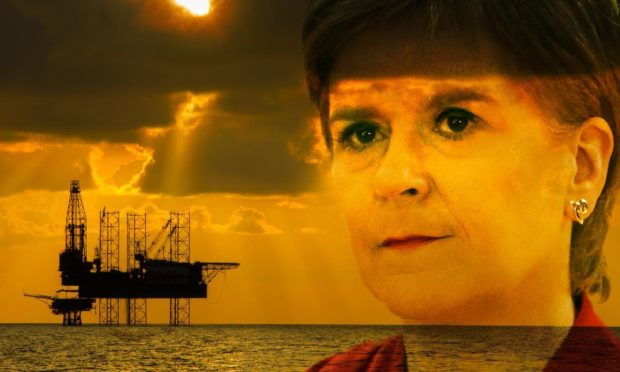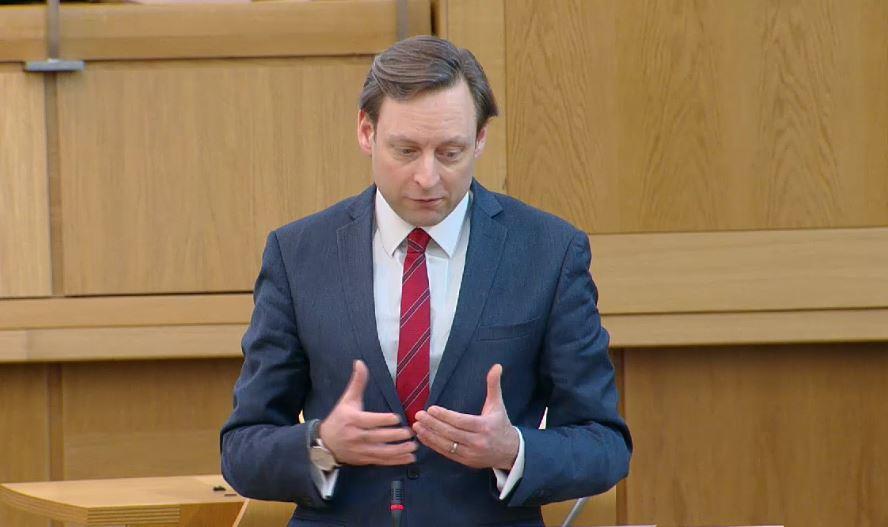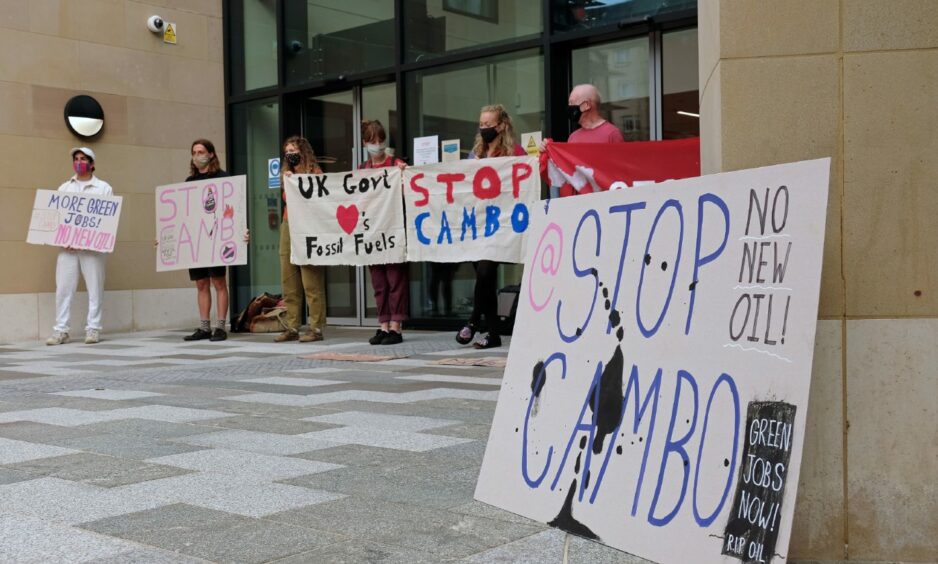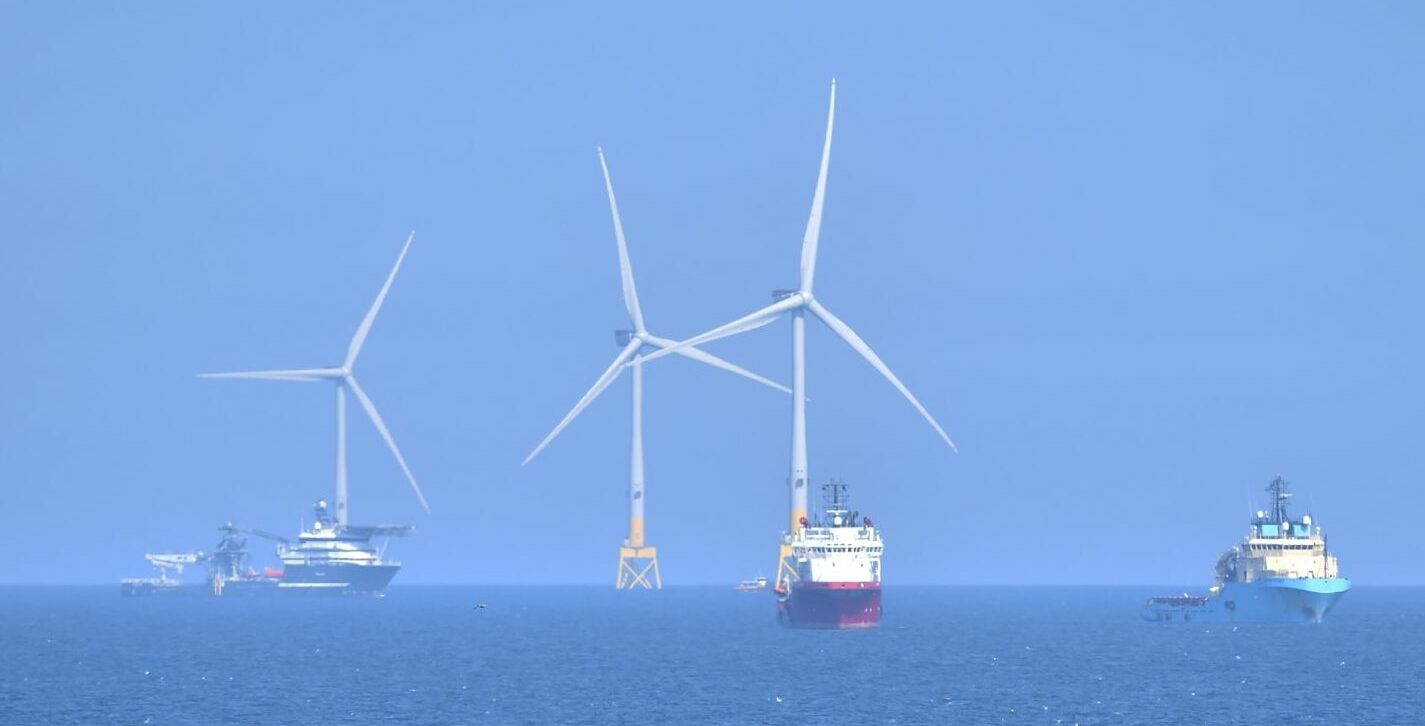The SNP has been urged to back the Cambo oil field off Shetland, ahead of a vote brought forward by the Scottish Conservatives.
Nicola Sturgeon will be put under pressure to ‘pick a side’ during Wednesday’s Holyrood debate on the future of the North Sea sector and 100,000 jobs the oil and gas sector supports.
The debate comes ahead of COP26 President Alok Sharma appearing remotely before MSPs to discuss plans for the upcoming climate change conference in Glasgow.
The Scottish Conservative motion will call for the Scottish Parliament to back future oil and gas projects, to protect Scottish jobs and prevent the need to import energy.
Liam Kerr, North-east MSP and Scottish Conservative shadow cabinet secretary for net zero, energy and transport, said the SNP have a “choice” to “side with the north-east economy or the extremist Greens”.
‘Misleading’ communities
However, the Scottish Greens accused the Tories of “misleading” communities who rely on jobs in the sector by failing to provide a “real future” for the industry.
Scottish Labour’s net zero spokeswoman Monica Lennon, who has already come out against the Cambo oil field near Shetland, said politicians “can’t make those kind of decisions if we’re serious about trying to prevent a climate catastrophe”.
The First Minister revealed last month she thinks the UK Government should “reassess” proposed schemes such as the controversial Cambo development.
It comes after a landmark UN report by the Intergovernmental Panel on Climate Change (IPCC) found it was “unequivocal” human activity is responsible for global warming.
The final decision on the oil field will rest with Westminster but if given the greenlight, Cambo could yield as many as 255 million barrels of oil over its lifetime – and produce an estimated 132 million tonnes of CO2 emissions.
‘SNP have a choice’
Speaking before the Holyrood debate on Wednesday, Mr Kerr said: “The north-east deserves to know if the Scottish Government still supports this vital industry and the 100,000 jobs it supports.
“The SNP have a choice: side with the north-east economy or the extremist Greens.

“They can either back a sensible transition to net zero that limits the need to import costly energy from abroad. Or they can be upfront that they favour a radical shift to end Scotland’s oil and gas industry quickly, which would likely harm our environment.”
However Scottish Greens climate spokesman, Mark Ruskell, said his party is “investing in jobs in alternative industries while the Tories call us names from the sidelines”.
He added: “The UN General Secretary himself has called for no more expansion in fossil fuels, and the UK Government’s own advisers the Climate Change Committee told MSPs the case has not been made.”
‘Climate catastrophe’
Ms Lennon, who sits on the net zero committee, accused the Tories of “not fully recognising the threat of the climate crisis” and said urgent action must be taken to “avert a climate catastrophe”.
She added: “That means we have to get serious about making our transition away from oil and gas extraction and to invest in green energy and green jobs.
“The Cambo oil field would mean extraction for another 25 years and we just can’t make those kind of decisions if we’re serious about trying to prevent a climate catastrophe.
“This needs to be bigger than party politics.”
‘Net-zero economy’
A Scottish Government spokesman said the IPCC’s most recent scientific report has underlined the need to take “significant, near-term action in response to the climate emergency”.
However, he added that the oil and gas sector has a “positive role to play in our journey to net zero” and that the North Sea has a “vibrant future in renewable energy”.
The spokesman continued: “Meeting our climate obligations while ensuring a secure energy supply and supporting our highly skilled workforce to transition to the green jobs of the future must all go hand in hand.
“We will continue to work closely with industry, trade unions, communities and workers to ensure the right skills and training are in place to protect and create jobs as we become a net-zero economy.”




